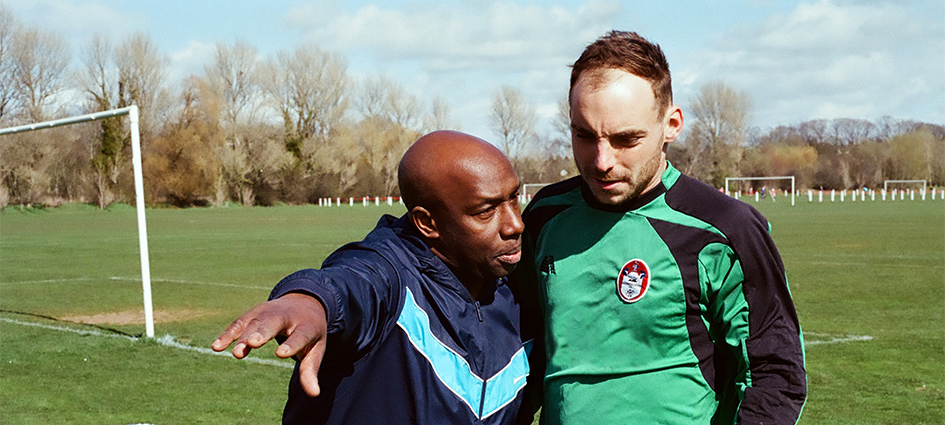
Top tips: supporting your players’ mental health
- Peter Glynn
- 03 September 2019
It is estimated that four million people involved in grassroots football may experience mental health problems over the next 12 months.
To help tackle this, Heads Up - a partnership between The FA and Heads Together - has been launched to improve the mental health of men involved in adult (over 18s) football.
In the first of a series of articles supporting the campaign, The Boot Room looks at how coaches and managers in adult football can support the mental health of the players in their squad*.
1. Observation skills
Over the course of a season you will spend many hours observing your players - both on and off the pitch. Changes in attitude, behaviour and mood may indicate a player in your team is experiencing mental health problems and shouldn’t be ignored. Look out for individuals who are disinterested, behave out of character or show symptoms such as over exercising or self-harm. Spotting the signs that something might not be right is the first step to starting a supportive conversation and helping your players to get better.
2. Connection and conversation
Having a positive relationship with your squad will give the players more confidence to share mental health problems they may be experiencing. Speaking with individuals at training and on matchday will help to establish these relationships and can develop trust and understanding. Asking “how are you?” when players arrive can prompt a conversation about football or life away from the pitch. Similarly, a session warm-up is a good opportunity to connect with members of the group and will help individuals feel relaxed and welcome.

3. Why do players play?
Adult football offers players a release from day-to-day life, the opportunity to stay physically fit and the camaraderie of being part of a team. Each of these aspects positively impacts on wellbeing and mental health and the reasons adults give up their time to play. Reminding yourself why your players play should offer perspective and can act as a guide for your coaching approach. After every training session or game, try and reflect on whether you have contributed positively to the players’ enjoyment and met their expectations of why they play.
4. Physical benefits
Players with mental health problems often withdraw from training and playing and, as a result, miss out on the positive benefits the game offers. If you do have a player who wants to finish playing, it is important to reinforce the physical and psychological benefits of being involved in football and emphasise the enjoyment and satisfaction it can bring.
For this to be true, your training sessions should be fun with lots of opportunities to play the game and take part in game-like activities. All players should leave the session having learned more about football and feel the satisfaction of an enjoyable workout. Similarly, matchday should be a positive experience where everyone involved strives to win, but not at the expense of individual enjoyment and wellbeing.
Also, consider those players who are injured or routinely picked as substitute. What is their experience of the game? How can you increase their involvement and enjoyment?

5. Friendship and camaraderie
Having teammates to talk to is vital in maintaining positive mental health. Developing strong team spirit and camaraderie is something that should be encouraged and developed by coaches. Team-building activities in training - where groups work towards an aim together - can further strengthen friendships between players.
Also, encourage more established players to guide and mentor new arrivals to the club and make them feel welcome. The stronger the bond and trust between individuals, the more likely players will speak with each other about problems they may be experiencing.
6. Coach wellbeing
Maintaining your own physical and mental health is an important part of your role as a coach. Feeling fresh and positive will help give you a clear outlook and the energy to support others. Taking a break from coaching when you need it and putting football into context is key to this.
Also, consider how you connect with other coaches or managers. Coaching in adult football can be lonely and it is important to develop a supportive coaching network. Try and link with other coaches at your club or in your local area. Attending conferences and events is another way to widen your network.

7. Signposting to specialist help
As a coach or manager in adult football you are not expected to be a mental health expert. The ‘Heads up’ campaign encourages you to spot the signs of mental health problems, have the confidence to support your players and signpost them to specialist help when needed. If you do this, you will play a big part in improving mental health in our game.
*Read the official guidance notes for managers and coaches working in adult football here.
‘Heads Up’ is the result of a partnership between The FA and Heads Together. Heads Together is a mental health initiative spearheaded by The Royal Foundation of The Duke and Duchess of Cambridge and The Duke and Duchess of Sussex. Read more about the ‘Heads Up’ campaign by clicking here.
The Boot Room will be publishing articles supporting the campaign throughout the 2019/20 season.


